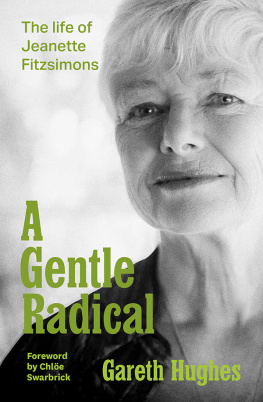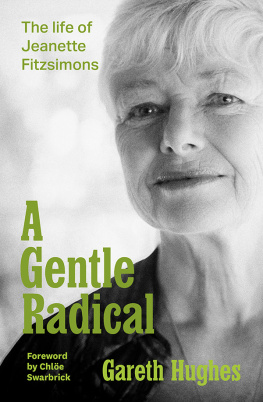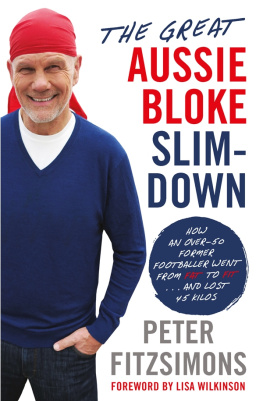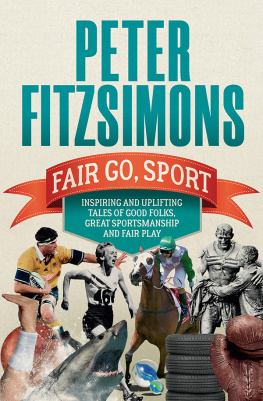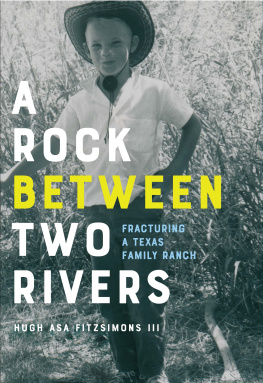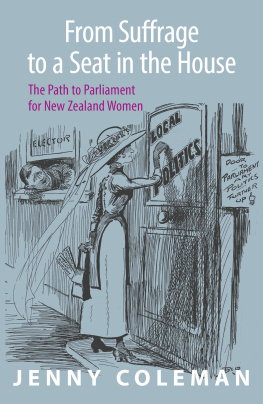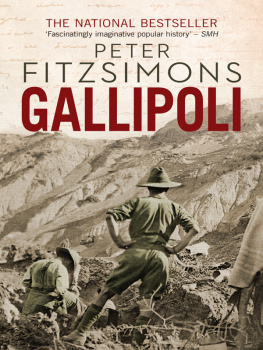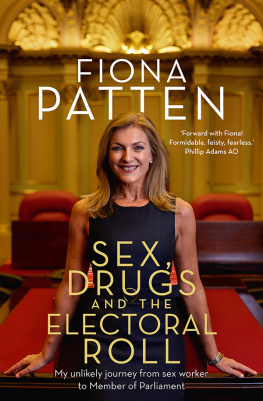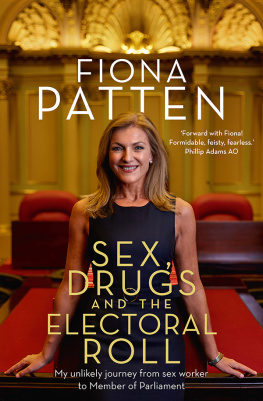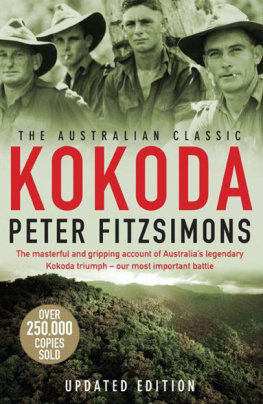
First published in 2022
Text Gareth Hughes, 2022
Images as credited on the page
All rights reserved. No part of this book may be reproduced or transmitted in any form or by any means, electronic or mechanical, including photocopying, recording or by any information storage and retrieval system, without prior permission in writing from the publisher.
Allen & Unwin
Level 2, 10 College Hill
Auckland 1011, New Zealand
(64 9) 377 3800
www.allenandunwin.co.nz
83 Alexander Street
Crows Nest NSW 2065, Australia
(61 2) 8425 0100
A catalogue record for this book is available from the National Library of New Zealand
ISBN 978 1 98854 783 1
eISBN 978 1 76106 444 9
Design by Saskia Nicol
Cover photo by Adrian Malloch
For Harry
Jeanette really wanted to get arrested. Decades of her life were dedicated to researching, teaching, organising, debating and using Parliamentary process to try to change a system that exploited both people and the planet.
Despite alarms sounded in the 1970s and clanging throughout the next 50 years, the system wasnt listening. After a career of appealing to peoples better nature and working within appropriate processes, Jeanette felt deeply that the best strategy she had left was to put herself on the frontline and hopefully on the front page. As always, it was for something much bigger than herself.
If the climate couldnt hold a press conference about being intentionally used and abused, she would.
I FOUND MY last email from Jeanette in my personal inbox, from December 2019. Id seen her about a month beforehand at a conference on Citizens Assemblies in Wellington. She pulled me aside in the hallways to talk about her deep concern for the potential manipulation of democracy by rich and powerful figures through the power of social media. They would tap into the genuine frustration and sense of disconnection felt by many, she said, and they would warp the target of those anxieties into something very dangerous. Our nation was not immune.
This email, though, was primarily focused on the Origins of the Greens videos shed just finished putting together with Young Greens, a cluster of volunteers and donors. She was asking for help get them out there, so she could set the record straight that we, the Greens [did not] splinter off the Alliance but were in fact a force unto ourselves dating back to 1972. Jeanette, like most Greens, abhorred oversimplification of history and lack of recognition for the work done by the giants on whose shoulders we stand.
Near the end of the email, she wrote:
Chle, you have done a great job on the cannabis referendum and the safeguards in the Bill should set a lot of minds at rest. I do hope you continue for another term. The first is always the hardest and we really need you.
When I was first elected, it was Catherine Delahunty who told me that feeling like an alien inside Parliament was the appropriate response, especially for a Green. It was Jeanette who would pick up my calls of upset and angst at the system and try to convince me we had to keep hacking at it. I know she did the same for many others, raging against and inside the machine.
I first met Jeanette at a picnic table out the back of Silverstream Retreat in Wellington, during the Greens 2017 Candidates Conference. I had never been to a political party conference before, if you exclude the patchwork reporting I did for 95bFM on the peculiarity of the 2014 InternetMana Party launch at Kim Dotcoms mansion.
I dont remember much of our first conversation, but I do remember her curiosity as she looked at me and said, People are saying theyre trying to helicopter you in.
Id never been a member of a political party before and had joined the Greens after a decidedly odd and completely unplanned run at the Auckland mayoralty in 2016. My mates Tom and Casey had made videos helping me explain why local government matters, and with a few local hui wed somehow managed to scrape together just less than 30,000 votes. Without a Green in the running and with policies on land value tax, denser housing, a greener city, a rapid public transit network and vibrant nightlife, my independent status probably could have been shaped to a Green Party ticket had I not left it to the last day to put in my candidate application.
It was also the case that Id never really thought that much about political parties. On bFM Id interviewed Russel Norman and Metiria Turei, but also Jacinda Ardern and Tracey Martin. National wouldnt come on the show for some reason.
I gave the Greens my party vote in 2014, the first general election for which I was eligible, because in the middle of the saga of Dirty Politics, they remained the ones who shone with the greatest integrity. Nobody couldve predicted that three years later Id somehow be running for that same party. Jeanettes oft-repeated catch-cry, of John Lennon, was Life is what happens when youre busy making other plans.
I ASKED JEANETTE who they were and what helicoptering in meant. She explained to me that there were some people in the party who believed that having exciting candidates would mean people might pay more attention to us in the news. I was confused, as I didnt feel particularly exciting. I wanted to campaign on constitutional law reform and the exciting, inter-connected relationship and responsibilities that could be created by embodying Te Tiriti and requiring constitutional consideration of our relationship to the planet.
During that campaign and the next few years, Jeanette would help me navigate the feelings that came from some people saying I didnt deserve a place in politics or the party. These happened to be feelings I already held myself, as one stereotypical millennial with deep self-loathing. Theyre concerns that encroach on the minds of most politicians, Id hope, but they perhaps shadow most closely a party that for much of its lifetime has sought to live free of embodiment in any one individual.
This is partly why it is so hard to pay due and proper respect to Jeanette Fitzsimons in a way that she would have liked. She did not really want to be a leader in a party that originally agreed to have none. She and Rod Donald gave up their shot at becoming Cabinet Ministers, which they both would have been really quite good at, precisely because the party itself was in its Parliamentary infancy. She was, as Gareth recounts in this book, prepared to lose her seat to preserve her principles.
Politics was a means and never an end, but Jeanette knew the value she alone could offer in some of the hardest and darkest times. That meant delaying her retirement for years after the tragic loss of Rod in the early 2000s. It meant performing to the cameras with me, the shiny young Green candidate, in 2017 during the partys extremely difficult campaign and near election-wipe-out after Labour knifed Metiria. It meant doing her darnedest to document our shared history, otherwise forever lost, before we lost her in 2020.
THE HISTORY AND insight contained in this book is a gift. Nearly 25 years since the Greens entered Parliament, it is documented here for all to read that the challenges we, the Greens, face in our relationship with the Labour Party, in the battles over parliamentary process and behaviour, in the ongoing escalation of rampant late capitalism and the work to be taken seriously on the only possible solutions are not novel.
Nor are the quarter-century old claims that the Greens are diverging from green issues. Nor is the regular revival of the ever-unsuccessful blue-Green (colour of algae) trope. Nor is the fight for cannabis legalisation, despite Jeanettes unfulfilled desire to debate Jenny Shipley on it. Nor are the several-hour-long party delegate meetings, regularly tested for consensus. Nor is our partys charter, which to our core commits us to Te Tiriti o Waitangi as this nations founding document, embodied in the pillars of ecological wisdom, social justice, non-violence and appropriate decision making.
Next page
